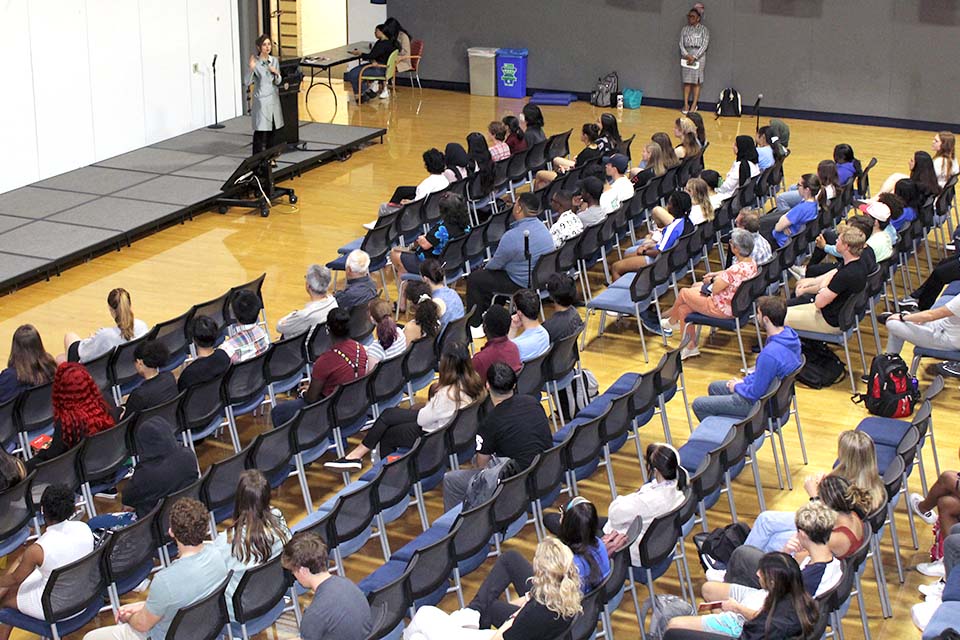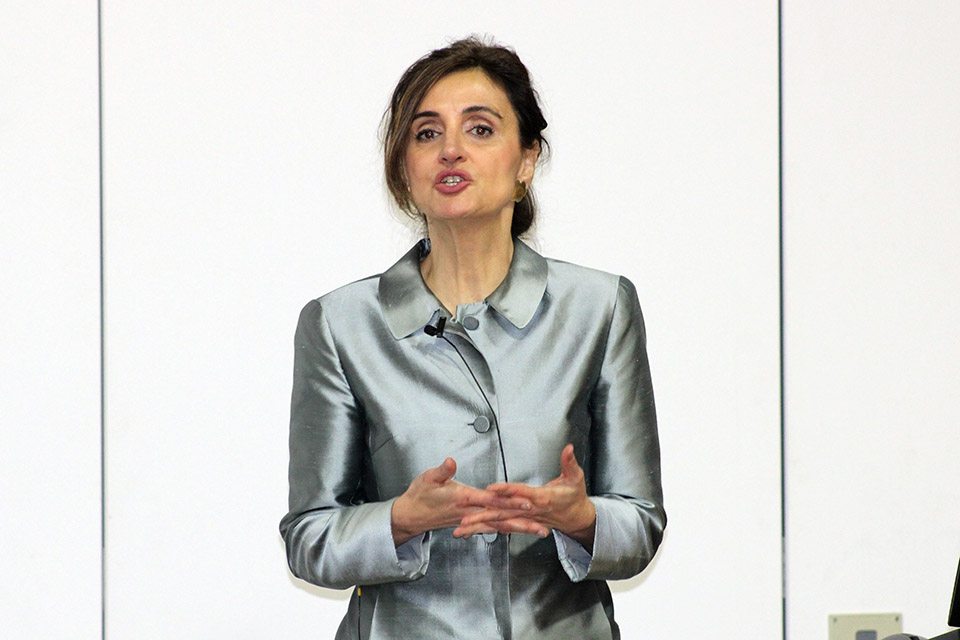Hakakian Talks Importance of Freedom at Atlas Week Keynote Address
04/21/2023
Roya Hakakian, an Iranian-American journalist and writer, has a first-hand perspective on losing freedom.
Growing up in Iran, Hakakian lived through the Iranian Revolution and saw the takeover of the country by the Islamic Republic of Iran. She was 12 in 1979 and can remember life before and after the leadership change. She remembers the loss of freedom.
Hakakian shared these memories Thursday evening at the Atlas Week Signature Symposium. The annual symposium spotlights renowned speakers who have dedicated their lives to issues of political and social justice.
Hakakian took the stage at the Center for Global Citizenship and shared her thoughts about the importance of freedom. She warned the gathered crowd to hold onto every freedom they currently enjoy in the United States.
Hakakian opened her remarks by sharing the story of Mahsa Amini. In September 2022, Amini, a 22-year-old woman, was arrested for an improper hijab. Amini died shortly after her arrest in police custody.
Following Amini’s death, protests began in Iran. Many women began burning their headscarves.
“Setting the symbol of oppression on fire was the greatest act of protest that they could stage,” Hakakian said.
Hakakian noted that in these protests, men and women were joining together to speak out against the issues with the Iranian leadership.
“This young generation saw us on social media, and they realized a free life is happening somewhere else to other people,” she said. “They realized they don't have it.”
Hakakian said Amini’s death hit her on a personal level. Amini being arrested for not wearing a head scarf properly reminded her of a time when that wasn’t an issue in Iran. Before the revolution, head scarves weren’t required. Hakakian shared a picture of her as a child without a scarf.
A few years later, after the regime change, she was forced to cover her hair.
“It wasn’t my choice,” she said. “I didn’t want it.”
In a short time, life in Iran changed, especially for women. There were new requirements for clothes and a limited color palette – dark colors like black and navy. Hakakian said music and dancing were banned, and life was drab.
“Once freedom is taken, it isn't just the big ticket items that are taken away,” she said. “They begin to control the minutia.”
She shared a story of a new principal taking over her Jewish school and trying to convert all the students to Islam. The principal repeatedly emphasized the need for head scarves.
When Amini died, Hakakian said she was transported back to her childhood.
“That could have been me,” she said. “I saw myself in her.”
She encouraged the crowd not to take their freedom for granted. Freedoms, she noted, can be taken away.
The Atlas Program was launched in the spring of 2001 as a way to recognize the international dimension of Saint Louis University's academic programs and to celebrate SLU's role in international education and service in light of the Jesuit tradition.
This year’s theme was “Chasing the Echoes of Freedom: The Fight for Freedom in the 21st Century."



















